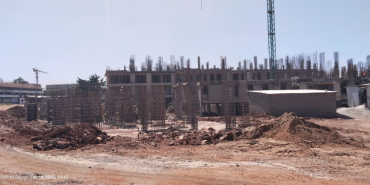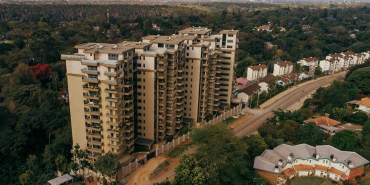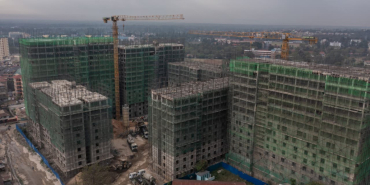Real Estate Tops Labour Productivity in Kenya's Service Sector

The latest Kenya Economic Report, published by the Kenya Institute for Public Policy Research and Analysis (KIPPRA), has revealed that the real estate sector in Kenya is leading in labour productivity within the services sector.
This achievement is particularly noteworthy given the challenges faced by the retail industry, including the closure of several stores. The report provides a comprehensive analysis of labour productivity across various counties, categorizing them into arid, semi-arid, and non-ASAL (Arid and Semi-Arid Lands) regions. When compared to other sub-sectors such as wholesale and retail, transport and storage, information and communication, and professional and technical services, the real estate sector consistently outperforms in terms of labour productivity. This is despite having a significantly smaller workforce.
In 2023, the real estate sector employed 3,146 workers, a number projected to increase to 3,500 in 2024. In contrast, the wholesale and retail sector employed 132,192 workers in 2023, with projections indicating an increase to 147,089 in 2024. Interestingly, while real estate boasts the highest labour productivity, the wholesale and retail sector, which is considered a crucial growth indicator for real estate, exhibits the lowest productivity. The real estate sector encompasses a range of activities, including buying, selling, renting, and operating self-owned or leased properties, as well as the work of real estate agents.
The report highlights that the real estate sector maintained the highest labour productivity across all county categories. In arid counties, the sector's high productivity is attributed to low employment levels relative to output, primarily driven by the operation of self-owned or leased real estate in urban centres. Conversely, the wholesale and retail trade sector consistently shows the lowest labour productivity across all county categories, despite having the highest share of employment among the services sectors. The high labour productivity in the real estate sector is largely attributed to the technical skills associated with the industry. A significant portion of the workforce in real estate possesses advanced skills, with nearly half holding higher education qualifications.
The report indicates that real estate's labour productivity in arid counties stands at an impressive 48.44%, compared to 18.99% and 12.48% in semi-arid counties, and 16.93% in non-ASAL regions. In terms of growth, the real estate sub-sector experienced a robust 7.3% growth rate in 2023, significantly outpacing the 2.7% growth rate of the wholesale and retail sector. This growth rate nearly matches the overall services sector growth rate of 7.0%. The launch of the Kenya Economic Report 2024 was a significant event, attended by key stakeholders including representatives from the State Department for Economic Planning, KIPPRA, and various private sector entities.
Themed "Enhancing Productivity for Sustained Inclusive Growth in Kenya," the report aims to present evidence-based public policy options to foster sustainable and inclusive growth by boosting productivity across various sectors. The report also underscores the importance of advanced skills in driving productivity. For instance, it notes that close to two-thirds of workers in professional, scientific, and technical activities possess a university degree or higher. In the real estate sector specifically, 43.26% of the workforce holds such qualifications, highlighting the sector's reliance on a highly skilled labour force.














Add new comment